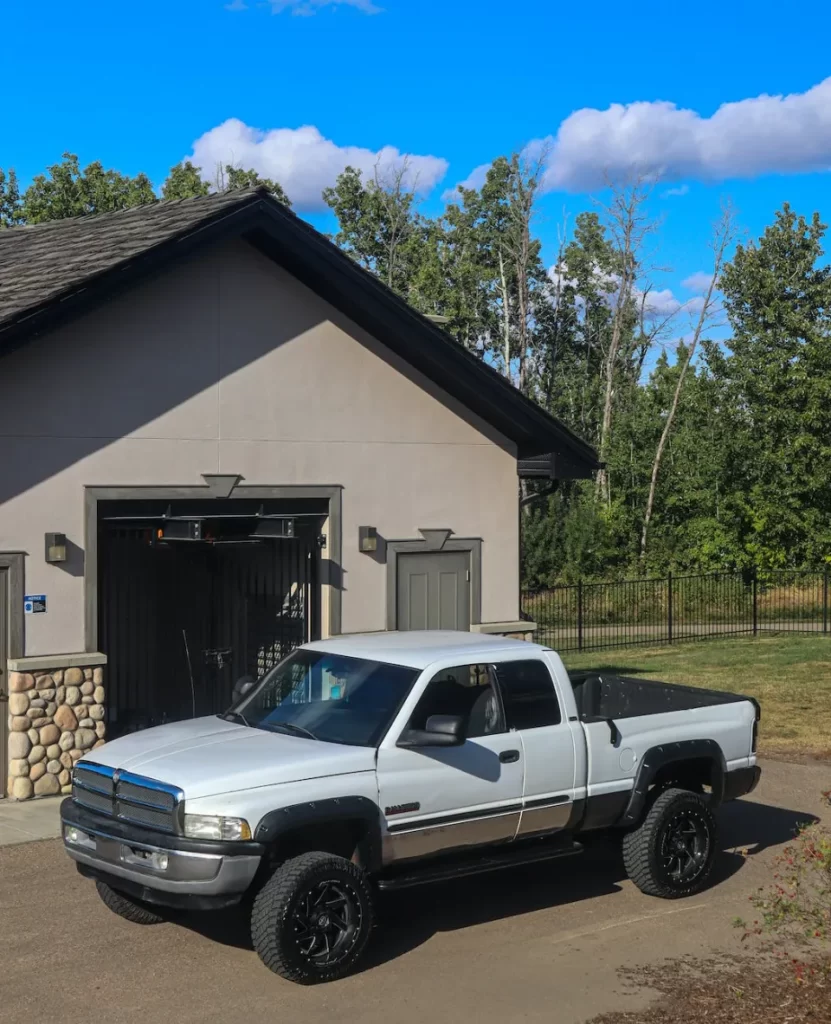
Is Your Pickup Truck Considered Commercial Vehicle – How to Define
The pickup truck is considered a commercial vehicle. HMRC regulations specify what constitutes a commercial vehicle. Different categories that HMRC assigns to vehicles frequently have an impact on the amount of taxes that must be paid on that particular vehicle.
To learn more about commercial vehicles used for business purposes and the advantages of the commercial vehicle road tax, read this article.

Commercial Fleet Vehicle Definition
HMRC definition is as follows:
- Weighing at least 3.5 tonnes or more
- Able to haul at least one tonne of cargo
- For business purposes
- Lorries, vans, tractors, pickup trucks, and “car-derived vans” are all considered commercial vehicles.
Meaning that benefit-in-kind taxes must be paid if commercial vehicles are used for personal travel.
What is a Commercial Vehicle?
As Auto Insurance Discounter says, “commercial vehicles are vehicles that transport goods or passengers for profit.” Typically, this refers to cars, trucks, vans, dump trucks, semi-trucks, and other similar vehicles. A commercial vehicle can almost always be identified when seen. They are predominately truck-based, though vans are a close second.
While trucks are the most typical type of commercial vehicle, any car, truck, or other vehicle that is owned or leased by a business and is primarily used for business (e.g., a pizza delivery scooter or a car you use for Uber).
Are Pickup Trucks Commercial Vehicles?
Whether a vehicle is regarded as commercially driven greatly depends on its intended use. The majority of pickup trucks cruising the streets of our planet are not necessarily categorized as commercial vehicles. However, many states automatically classify any vehicle that weighs more than 26,000 lbs as a commercial vehicle.
Other situations where this automatic delegation applies include when a vehicle is operated for financial gain, has a capacity of at least 16 passengers, or is used to transport hazardous materials. When it comes to pickup trucks, the answer almost always depends on how it is used. Even though it’s small, a truck the size of a Ford Ranger would need to be registered as a commercial vehicle if its primary purpose were mulching for a landscaping business.
Requirements for a Commercial Fleet Vehicle
A vehicle must have a gross weight of 3.5 tonnes and be intended to transport goods or objects in order to qualify as a commercial vehicle. It must be completely windowless, and the loading area must be large.
However, the requirements for car-derived vans are a bit different. Car-derived vans have a design that gives them a car-like exterior while giving them a van-like interior.

For a car-derived van to be classed as a business company vehicle, it must:
- Have a laden gross weight of 2 tonnes
- Be built on a platform designed to build vans by the same manufacturer
- Not have back seats or windows, to discourage human transport – if it must have windows, they must be opaque or tinted
- Not have floor panels – they can only feature loading bays
These structural specifications are typically put in place to prevent owners from using their cars as passenger ferries. Once you use it for people transportation, it loses its ‘commercial vehicle’ status.
There are additional conditions that a commercial vehicle must satisfy in addition to these structural prerequisites. The restriction that no employee may use the vehicle for personal commuting is the most crucial. You will benefit from paying less road tax for your fleet if you can fulfill the requirements.
What Taxes Are Required for Commercial Vehicles?
Commercial vehicles are taxed less than company vehicles. While cars have different tax rates (based on emissions), all vehicles used specifically for commercial purposes fall in the same tax category. Tax computations are now simpler as a result.
Before discussing road tax for vans and lorries, it is important to note that HMRC does not impose taxes on vehicles used exclusively for business. This means that as long as the van is not used for personal purposes, there will be no fees.
Taxes will, however, become a problem once your vehicles that are only used for business travel are put to private use. The benefit-in-kind tax imposed on company vehicles is this.
How Are Electric Commercial Vehicles Taxed?
To encourage businesses to invest more in EVs, electric vehicles used for business purposes, including electric vans, are taxed at a lower BIK rate. This tax break may apply to you if you only use an electric commercial pickup or van for business purposes.
The BIK tax must be paid, though, if you use it for travel that is not related to your job. Fortunately, the road tax for electric commercial vehicles is roughly 60% lower than the standard running rate for conventional vehicles.
Are Commercial Vehicles Treated Differently Than Passenger Vehicles?
In the majority of states, any vehicle that exceeds a certain size and weight must have special license plates and a commercial driver’s license (CDL). Additionally, if you use a vehicle for work, you must have special commercial vehicle insurance.
This is due to the fact that driving these kinds of trucks and vans frequently requires more skill, risk, and experience. The damage to a commercial vehicle is therefore not covered by standard auto insurance because the likelihood of an accident is much higher.
Do Commercial Vehicles Have Any Benefits?
Commercial vehicles are eligible for VAT relief under HMRC regulations, unlike other types of vehicles. Before HMRC can determine how much VAT relief your company is eligible for, you must maintain accurate records of your mileage and fuel consumption. Additionally, these vehicles pay less road tax.
Capital allowances may be claimed for commercial vehicles. Under the annual investment allowance, which enables businesses to deduct certain products from their taxes, commercial vehicles like vans are eligible.
When used for this purpose, business vehicles will be classed under “plant and machinery”. This enables your company to take advantage of capital allowances on the purchase.

Conclusion on What Are Commercial Fleets
The most practical and useful vehicles on the road are pickup trucks. It’s difficult to argue against the pickup truck’s status as the Swiss Army Knife of the automotive industry given that you can drive it to work, use it all day, drive it home, and then take a road trip to go fishing all in the same vehicle.



Average Rating